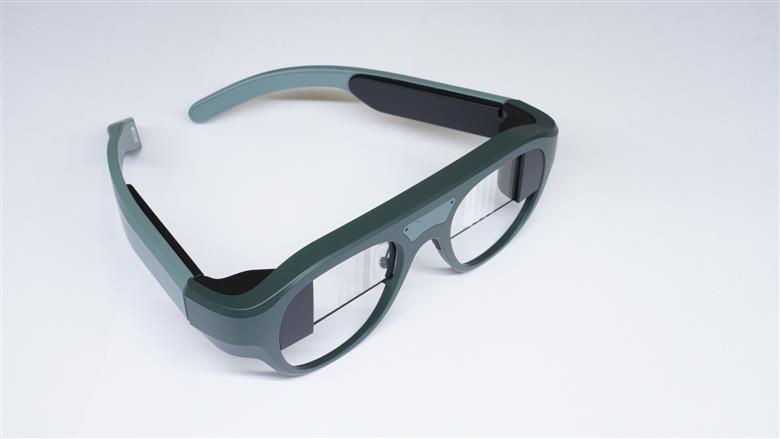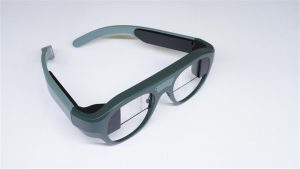Augmented reality eyeglasses provides comfort for hearing-impaired and multi-language users


Hearing loss compensation and spoken language translation can now be provided using augmented reality (AR) eyeglasses from Beijing LLVision Technology, which display voice translations in text on the lenses in real time.
LLVision employs automatic speech recognition technology and artificial intelligence to create, stream and display voice translations in milliseconds. The computer chip integrated in the legs of the glasses translates voice input into text data. The glasses connect wirelessly to a smartphone app that handles user authentication.
According to the World Health Organization, about 1.5 billion people (nearly 20 percent of the global population) live with hearing loss – a number that could rise to 2.5 billion by 2050. Another trend is the growing need for international communications that has arisen with the loosening of COVID-19 restrictions.
The LEION Hey glasses can enable individuals to cope with both scenarios. They can help avoid the challenges of hearing in noisy environments or lip-reading when people are wearing masks. Also, they can facilitate communication in multilingual work environments and enable more-active business and social interactions.
The company’s LEION Hey glasses feature legs (or temples) molded from SABIC’s tough, lightweight and inherent, non-halogenated flame-retardant ULTEM 1000 resin. ULTEM resin enables thin-wall molding of the hollow legs, which contain both a lithium-ion battery and a computer chip to enable rapid, multi-language translations. SABIC’s innovative material helped LLVision minimize the weight of the legs to give users all-day comfort, while providing high strength that enables key components to be integrated into the legs with maximum functionality.
“At the beginning of the design phase, we set a goal to make the lightest AR glasses on the market,” recalled Mr. Liang Xianglong, Co-Founder and Leader of Hardware Department of LLVision. “Every gram mattered to the comfort of our customers. However, with all the components required for AR glasses, including the optical module, microphone and computer chip, it was a difficult challenge. After comparing and testing materials from more than 20 suppliers globally, we found SABIC’s ULTEM resin to be the lightest, with additional advantages of strength, resilience and inherent, non-halogenated flame retardance. With the help of ULTEM resin, we lowered the overall weight of our LEION Hey glasses to just 79 grams, or 2.8 ounces.”


